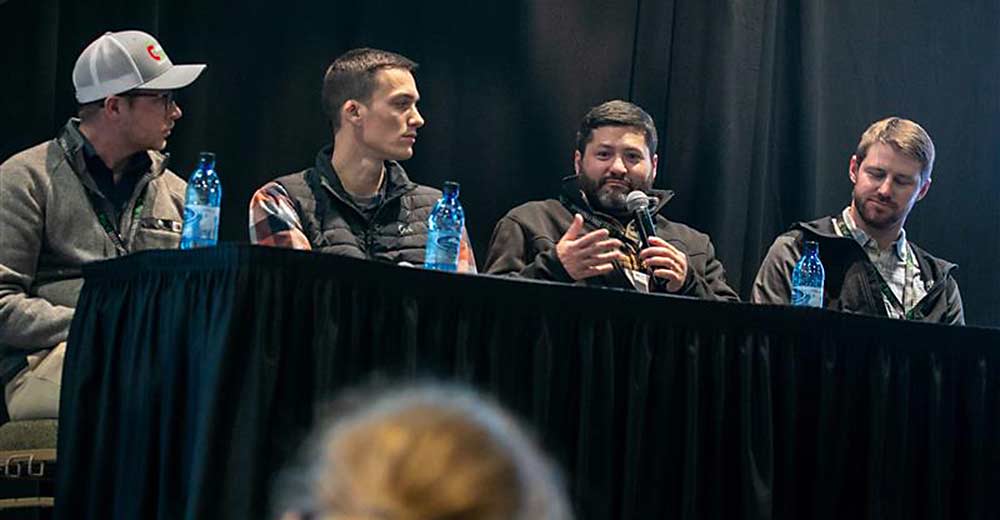
Panel discussions about automated irrigation tools and robotic harvest highlighted a well-attended technology session to kick off Day 2 of the Washington State Tree Fruit Association Annual Meeting at the Three Rivers Convention Center in Kennewick.
The irrigation panel discussed everything from clogged sprinkler heads to integrating data-driven sensors with employees who may have decades of their own manual experience.
“It’s never going to replace irrigators; you’ll still need people out there,” said one of the panelists, Chet Dufault of Emmanuel Enterprises. He wants his staff troubleshooting, not opening and closing valves.
The panel generated a lot of questions from the audience. “You guys are popular,” said Steve Mantle of innov8.ag, who moderated.
Also fielding a lot of audience questions were the panelists discussing automated and mechanical harvest technology, featuring representatives from Tevel and advanced.farm, both working on a robotic apple picker; Automated Ag, which builds a harvest-assist vacuum platform; and Next Fruit 4.0, a Dutch company developing a robotic pear picker. All say they have made strides in recent years to make their machines faster and gentler on fruit.
Ittai Marom, the general manager of Tevel, told the crowd there is room for multiple companies.
“This is not a competition,” he said. “… Everybody’s presenting their own offering, but the world is huge.”
Meanwhile, in the “Underground” session, researchers shared insights into soil health indicators that matter for Eastern Washington orchards and vineyards and on the complexity of boosting beneficial microbial activity in soils.
Then, an industry panel spoke about their experiences managing soils, from controlling compaction to applying for carbon credits.
“Anyone who has worked with soils knows it’s a long process,” said Greg Newman, the chief agronomist for NWFM. There are a lot of potentially beneficial practices and products out there, but it takes time to see the benefits.
One positive he highlighted is bringing in chippers to turn waste wood into mulch. In sandy Mattawa-area orchards, mulch applications enabled the company to “get an extra four days out of our water,” Newman said. “Those things add up.”
The event will continue today and Wednesday.
—by Ross Courtney and Kate Prengaman






Leave A Comment